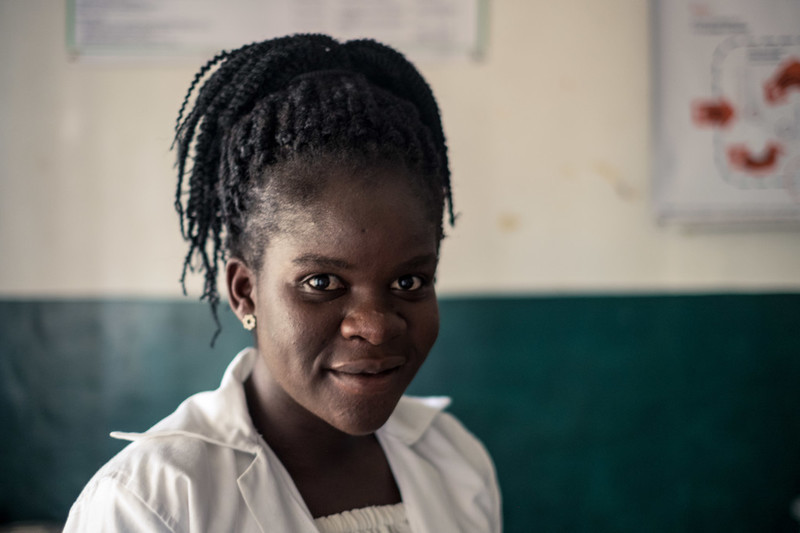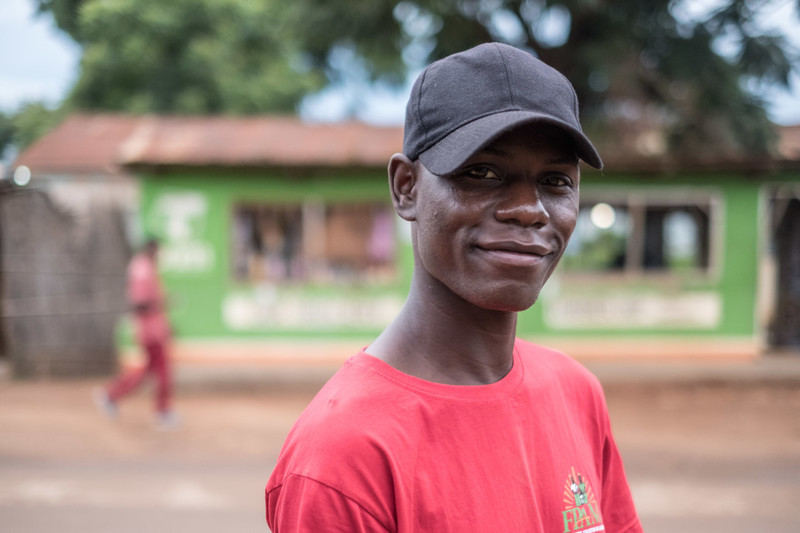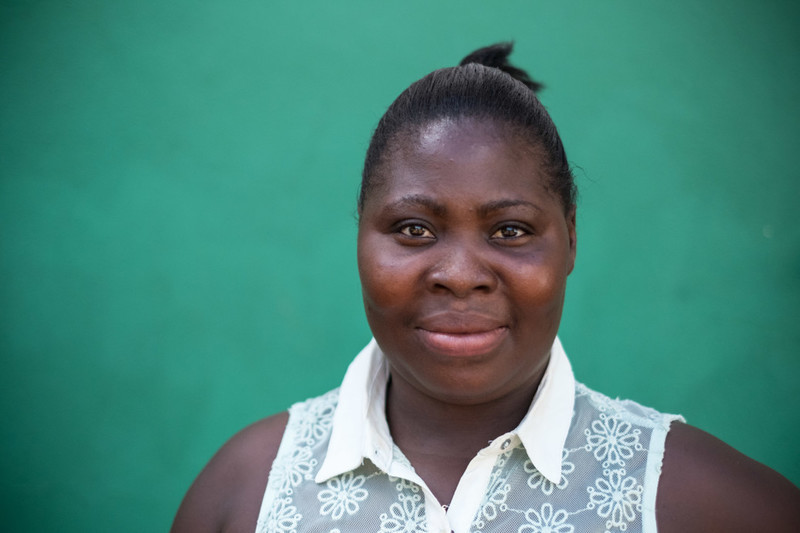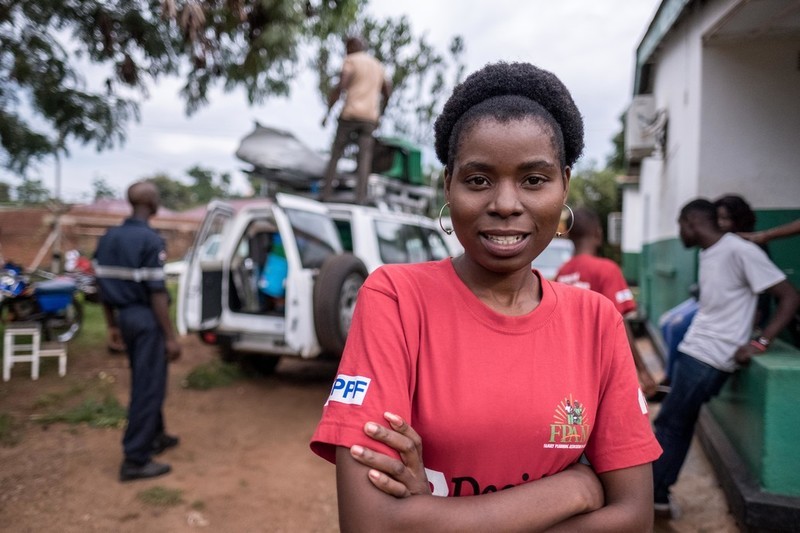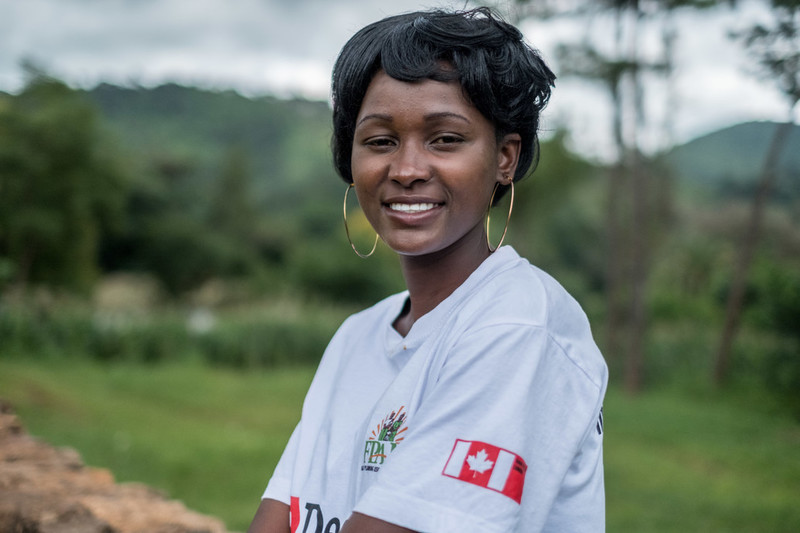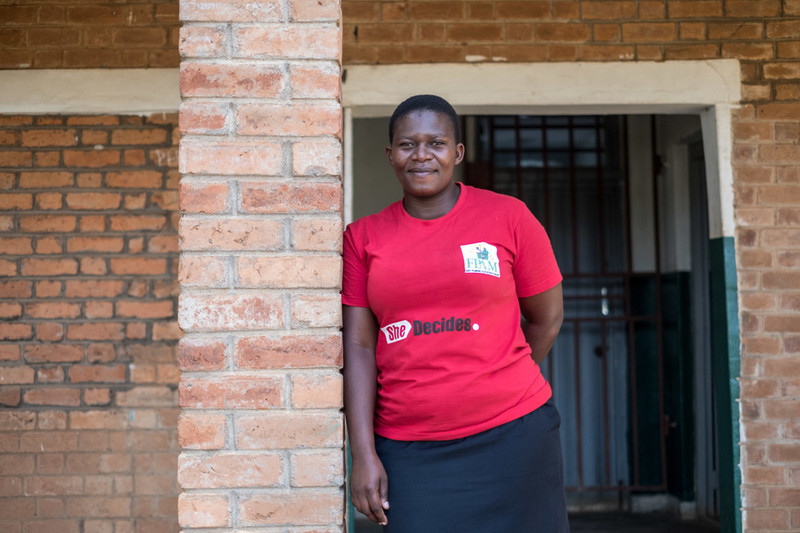In 2017, the Family Planning Association of Malawi (FPAM) refused to sign the Global Gag Rule and consequently lost vital US funding forcing lifeline projects such as Linkages, which provided care to sex workers, to close. By signing the GGR policy, FPAM would be going against what it stood for at the heart of its mission – to offer integrated healthcare in one place no matter how remote. “You don’t want a client to have to move from one place to another,” explains Executive Director Donald Makwakwa. FPAM provides integrated care at its Youth Life Centers and outreach clinics, which offer young people who have come to them for condoms other care including abortion, counselling, and STI tests.
Committed to abortion care despite loss of funds
Donald Makwakwa, Executive Director FPAM
“Organizations had to make a choice. We have funding from the US government, do we lose it? Or do we keep it?” says Donald Makwakwa, Executive Director of FPAM, reflecting on the impact of the 2017 Global Gag Rule. FPAM made the decision to lose USAID funding, but along the way lost much more: 40 staff members, its reputation among clients and prospective employees, and momentum in their advocacy work due to some of their allies signing onto the Rule. “When we are talking about family planning, we also believe that we cannot stop talking about abortion because the two are very much related,” says Makwakwa.
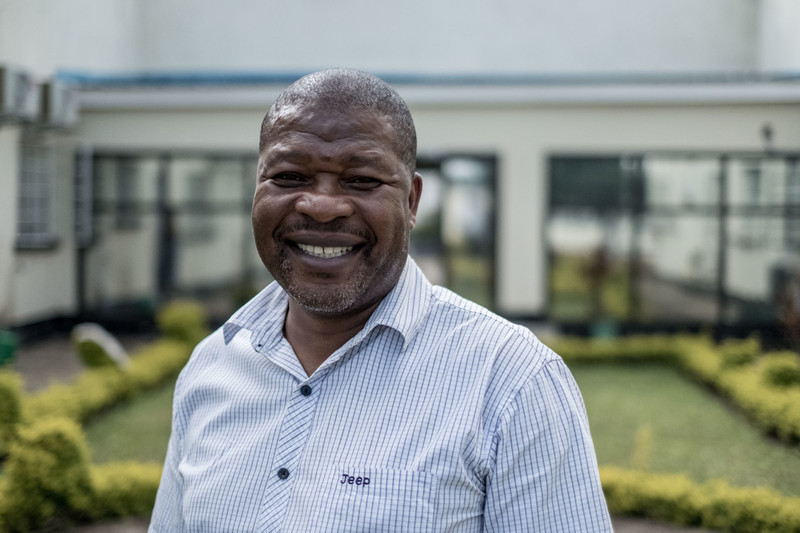
Sex workers face limited access to care
Mary, sex worker
The loss of funds brought an abrupt end to FPAM’s Linkages project, which provided tailored healthcare to female sex workers; FPAM’s plans to train staff in all hospitals on delivering care to sex workers were derailed. Mary was a peer educator with the Linkages project and became a go-to person for other women to turn to in cases of sexual assault. “I’ll receive a message from someone who has been assaulted, then call everyone together to discuss the issue, and we’d escort that person to report to the police,” says Mary. “Since the project ended, most of us find it difficult to access these services,” she continues, adding that “new sex workers don’t have the information I have, and without Linkages we’re not able to reach all the hotspot bars in Lilongwe to educate them.”

Feeling the impact of the Linkages project
*Marianne, sex worker
“I wouldn’t be alive today if it wasn’t for Linkages,” says 30-year-old sex worker Marianne simply. When outreach workers in Mzuzu met Marianne at a bar, she says she was having unprotected sex and drinking and smoking heavily. “I was just doing everything that I could think of doing.” In her eyes, the main benefit of Linkages was that it reached everyone in her community - including those who didn’t feel comfortable going to hospitals for care. Marianne says that she now takes pride in keeping herself and her community safe. “With the new information I got, I was protecting my friends by using a condom when a man comes, so that when another woman sleeps with the same man, she won’t get the same infection.”
*pseudonym

Re-building healthcare provision through Canadian funding
Youth volunteers and FPAM staff set up an outreach clinic in the village of Chigude.
Through funding from Global Affairs Canada (GAC) FPAM has been able to rebuild their healthcare provision following the Global Gag Rule. The funding has kept their Youth Life Centres afloat - including supporting Youth Action Movement volunteers - and helped FPAM do what it takes pride in most: delivering vital healthcare in remote areas where no other NGOs have a presence. Makwakwa says that the organization's operations in Mzuzu, northern Malawi, are entirely funded by GAC. “Without that funding, by now we wouldn’t have operations that side of the country, meaning a lot of Malawians would not have had access to sexual and other health services,” he explains.

Leaving no one behind
Alinafe Chasowa, District Manager for FPAM
Alinafe Chasowa, District Manager for FPAM in Mzuzu, is particularly proud of their outreach clinics which operate across all four traditional authorities in Mzimba North. “Most NGOs don’t come here because it’s so hard to reach,” she says. At an outreach clinic in the village of Chigude, over 100 women line up for the clinic. Because of local taboos around women’s sexuality - and the nearest clinic being a five hour walk away - many women hadn’t received sexual and reproductive healthcare before FPAM came to their area. She says that talking about abortions is “a very important thing” in this area, where there are high rates of unsafe abortion.

Taking control of the future
Monica, client
Monica, 23, is at a sexual and reproductive health clinic in Chigude, northern Malawi. Her two-month-old baby sleeps peacefully in a sling tied around her shoulder. It’s her third time to the clinic. “It’s very important for me to come here so I don’t get an unwanted pregnancy,” explains Monica, adding that “if that happens, all my plans will be cancelled.” Monica is currently busy preparing to build a house - which would have to be put on hold if she had to care for another child in addition to the two she already has.

Benefitting from integrated healthcare
Mariet, client
Mariet, 26, came to FPAM’s mobile clinic for the first time and got a cervical cancer screening. Mariet is engaged and has one child. She says she is thinking about using the contraceptive injection because her child is still young and she wants to leave some time before she has another. “Today I’ve learnt about issues of unsafe abortions,” says Mariet. “I can now go home and discuss this with my friends, so they can get the information from me in case they are not comfortable speaking to the health workers,” she explains, adding that many people in her community do not know their HIV status so would benefit from the test the FPAM clinic offers. “All the services are here. Many of my friends have so many children, because the nearest clinic is far. That’s why this outreach is very important for us.”
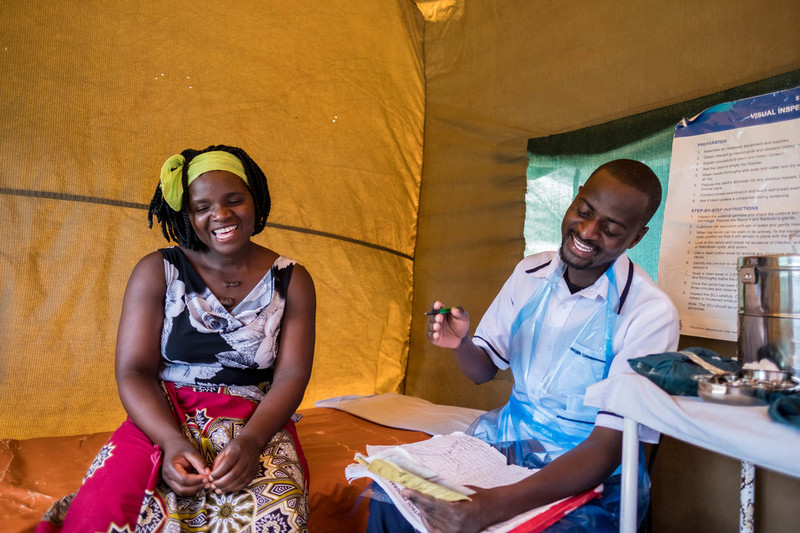
Young volunteers connect their peers to information and contraceptive care
Kondwani, Youth Action Movement volunteer
In Chigude, a usually quiet rural village in northern Malawi, young people gather around two tables laughing and chatting animatedly. “Most of them have come here for condoms, but I don’t just give them out,” says Kondwani, a 22-year-old Youth Action Movement (YAM) volunteer. “I ask them how do you use a condom? How is it useful to somebody who is using it?” Activities like this in hard-to-reach areas are one of many that the Youth Action Movement delivers across Malawi. Trained and hosted by Youth Life Centers, which provide sexual and reproductive healthcare aimed at youth, the volunteers meet regularly and reach out to their peers in schools, universities, and on social media.

Realities of unwanted pregnancies
Jennipher and Sellah, Youth Action Movement volunteers
For Jennipher, who lives in a village outside of Lilongwe, unwanted pregnancies amongst young women and girls like her are an everyday reality. “Girls often speak to me about these issues because they know I come to the Youth Life Center and that I know a lot about these issues,” explains Jennipher. “They are happy to talk to me about these issues because I’m young and also a girl. It’s hard for girls to talk about these issues to their families because they might not believe them,” says Jennipher, who is a Youth Action Movement (YAM) volunteer in her local area, Dowa. “It’s important to teach girls about abortion so they know how to take care of themselves and stop risking their lives,” she adds.

SheDecides encourages change through social media
Rodrick and Phoebe, Youth Action Movement volunteers & Social Media Agents
“Social networks are developing each and every day, so more young people are now on social media,” explains Rodrick, a trained Social Media Agent, adding that many young people don’t have access to books to read about sexual and reproductive health and rights. “It’s better to reach them on social media so they can see it.” He posts daily on social media channels to educate other young people about the issues they are passionate about. “One day I posted asking why the government of Malawi doesn’t legalize abortion, which I think is not good for the girls because they have their lives to live,” says Rodrick, adding that he believes abortion can keep more girls in education. Rodrick says that while people don’t always agree with him, he enjoys discussing the topic online.
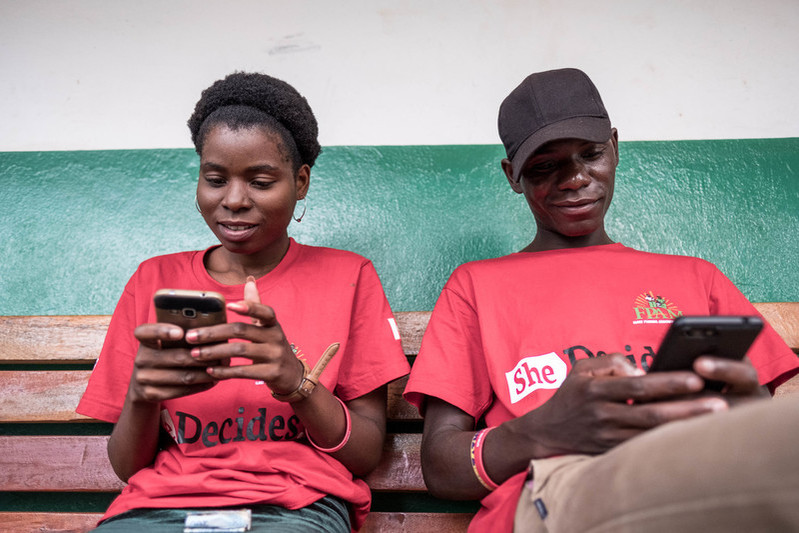
Youth help their peers follow their dreams
Partson, Youth Action Movement volunteer & Social Media Agent
Youth Action Movement Volunteer, Partson, understands the importance of contraceptive access if he and his peers are going to achieve their hopes and dreams. “We encourage young people to use contraception, and also to get help at the Youth Life Centre, so that after the pregnancy they can go back to school,” he says, adding that abortion counselling and post-abortion care are also offered. “We feel proud because we’re helping them to achieve their goals, like school and business,” he says, explaining how members of his youth group at Dowa Youth Life Centre encourage their friends to use its contraceptive and sexual healthcare provisions. “On social media, people ask questions that are more private than face-to-face where they can be shy. They are more free,” says Partson, laughing “we all go through sex, so we have to talk about it!”
Photos ©IPPF/Tommy Trenchard/Malawi

when
country
Malawi
Related Member Association
Family Planning Association of Malawi








